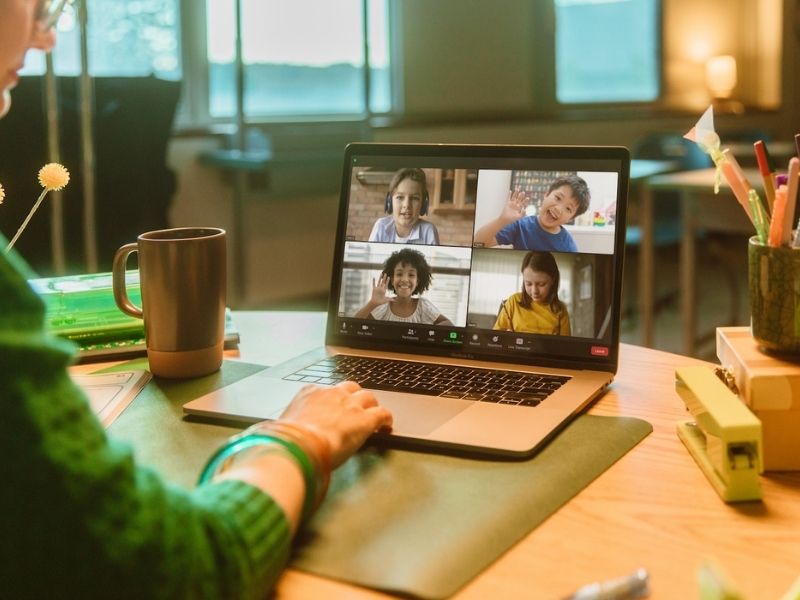Reshma Ravishanker
Privacy and discipline concerns bothered educators and students the most during the Covid-19-pandemic prompted switch to online classes, a paper published by researchers from premier institutes has revealed.
A research team led by Indian Institute of Technology Jodhpur’s Dr Venkatesha Murthy, Assistant Professor, School of Management and Entrepreneurship explored the social and ethical issues associated with online learning in the higher education sector in India. The paper is co-authored by Dr Venkatesha Murthy from IIT Jodhpur, Dr Sonali Bhattacharya and Dr Shubhasheesh Bhattacharya from Symbiosis International University, Pune.
From being watched closely by families and unintended audience while classes were underway to being gullible to social media bullying, teachers expressed privacy concerns. Students changing profile names on video calling platforms even while classes are underway to cartoon characters or anything inappropriate following social media trends was another challenge.
“Some of the mischievous students created memes of themselves as profile pictures during the online learning to hide their identity. Some of them posted memes of faculty members while they were teaching and posted them on social media which were a gross violation of privacy.”
A teacher who was spoken to about privacy from a student’s perspective recollected, “Sometimes, if the audio was on, there were personal talks on infighting in the family of the students. Mischievous students post it on social media much to the embarrassment of the victimized students.”
“Some felt the home environment in which students are studying may be embarrassing from them if the cameras are on, like some of them may have younger siblings making noises, parents quarrelling, houses located noisy surrounding, and dilapidated houses. They were of the views that switching off cameras or mics should be made optional due to privacy concern,” the paper has.
Whether or not students had to keep their cameras on invited varied opinions. With this also came questions over whether a corporate dress code was to be followed by educators and learners.
Even as students turned on cameras willingly at the start of the pandemic, gradually their cameras were switched off and faculty were caught unaware of the actual listeners. Even the opinion of students was divided on the tradeoff between “disciplinary concerns” and “privacy concerns” on keeping the cameras on.
“Faculty faced a lot of psychological stress while speaking to blank screens with pictures or names of students who had locked in. Many educators complained that students did not respond even when they were asked questions, which was not only disappointing for the educators, but also kept them wondering if the students were physically present onscreen or merely logged in,” the researchers said.
Also read: Online Learning: A University Professor’s Perspective on Online Learning
